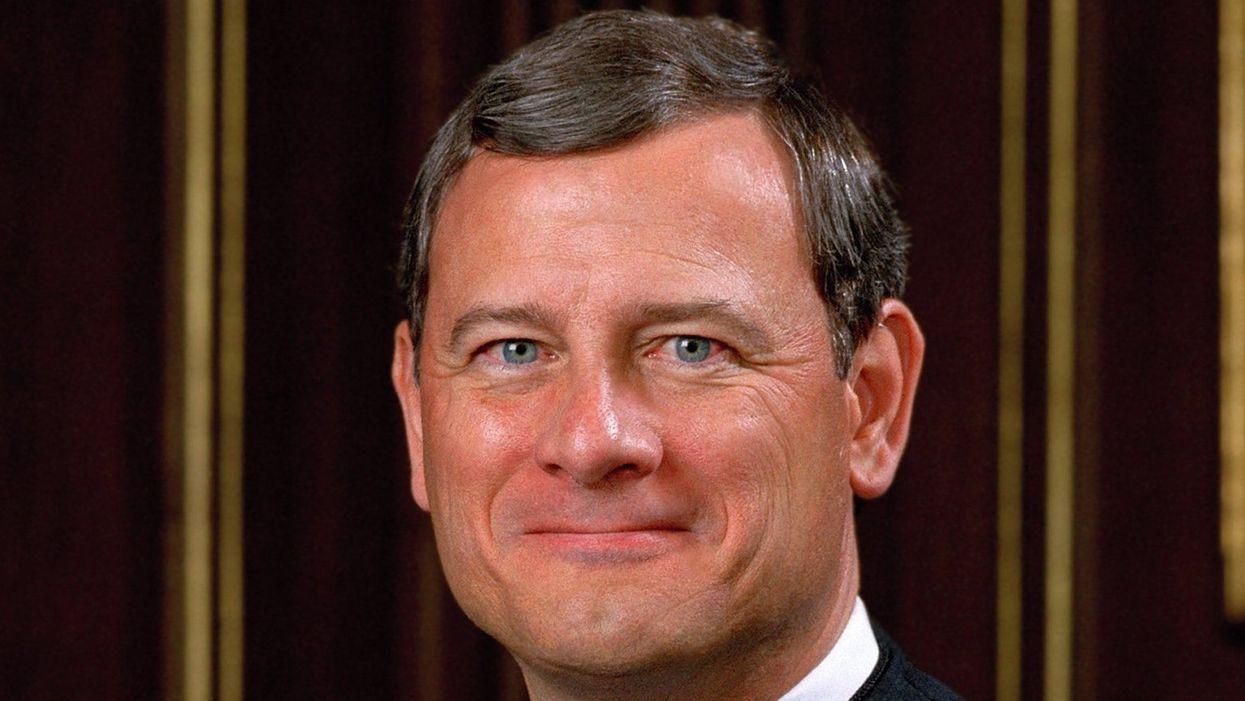How the 'unprecedented' Supreme Court leak made efforts to lobby conservatives on Roe 'all but impossible': report

U.S. Supreme Court Justice John Roberts, Wikimedia Commons
July 26, 2022 | 09:44AM ETBank
When the U.S. Supreme Court voted, 5-4, to overturn Roe v. Wade with its decision in Dobbs v. Jackson Women’s Health Organization, Chief Justice John Roberts was the only Republican dissenter. Roberts joined the other Republican-appointed justices in voting to uphold the restrictive Mississippi abortion law that was examined in Dobbs — that part of Dobbs was a 6-3 ruling — but he opposed overturning Roe. And according to CNN legal analyst Joan Biskupic, Roberts tried unsuccessfully to get some of his fellow Republicans to join him in voting not to overturn Roe.
“Chief Justice John Roberts privately lobbied fellow conservatives to save the constitutional right to abortion down to the bitter end, but May’s unprecedented leak of a draft opinion reversing Roe v. Wade made the effort all but impossible, multiple sources familiar with negotiations told CNN,” Biskupic reports. “It appears unlikely that Roberts’ best prospect — Justice Brett Kavanaugh — was ever close to switching his earlier vote, despite Roberts’ attempts that continued through the final weeks of the session. New details obtained by CNN provide insight into the high-stakes internal abortion-rights drama that intensified in late April when justices first learned the draft opinion would soon be published. Serious conflicts over the fate of the 1973 Roe were then accompanied by tensions over an investigation into the source of the leak that included obtaining cell phone data from law clerks and some permanent Court employees.”
In 2018, Sen. Susan Collins of Maine, a pro-choice Republican, drew a great deal of criticism from abortion rights defenders when she announced that she would be voting to confirm Kavanaugh to the U.S. Supreme Court. Collins insisted that Kavanaugh considered Roe v. Wade “settled law,” but in Dobbs, Kavanaugh ultimately joined four other Republican-appointed justices in voting to overturn Roe: Clarence Thomas, Samuel Alito and Donald Trump appointees Neil Gorsuch and Amy Coney Barrett. Rep. Alexandria Ocasio-Cortez of New York City has argued that Kavanaugh and Gorsuch should be impeached because they lied about their position on Roe during their Senate confirmation hearings. According to AOC, Kavanaugh and Gorsuch “lied under oath” about where they stood on Roe.
READ MORE: How Clarence Thomas’ concurring opinion suggests other rights may be vulnerable after Roe: analysis
Biskupic explains, “Multiple sources told CNN that Roberts’ overtures this spring, particularly to Kavanaugh, raised fears among conservatives and hope among liberals that the chief could change the outcome in the most closely watched case in decades. Once the draft was published by Politico, conservatives pressed their colleagues to try to hasten release of the final decision, lest anything suddenly threaten their majority. Roberts’ persuasive efforts, difficult even from the start, were thwarted by the sudden public nature of the state of play. He can usually work in private, seeking and offering concessions, without anyone beyond the Court knowing how he or other individual justices have voted or what they may be writing. Kavanaugh had indicated, during December oral arguments, that he wanted to overturn Roe, and CNN learned that he voted that way in a private justices’ conference session soon afterward. But the 2018 appointee of former President Donald Trump, who had been confirmed by the Senate only after expressing respect for Roe, has wavered in the past and been open to Roberts’ persuasion.”
Abortion rights defenders feared the worst in the Dobbs case. And their fears were confirmed on May 2, when Politico published Alito’s leaked majority draft opinion in Dobbs — one in which he declared that Roe had been wrongly decided by the Burger Court back in 1973. Then, on June 24, the Court announced its final decision in Dobbs, overturning Roe after 49 years, setting off massive protests all over the United States.
“The final decision flouted the Court’s traditional adherence to judicial restraint and precedent,” Biskupic observes. “Polls show public approval of the Court falling significantly, as the decision has been regarded as a product of politics rather than neutral decision-making. Roberts’ efforts directed toward Kavanaugh and to a lesser extent newest conservative Justice Amy Coney Barrett were anticipated. Some anti-abortion advocates and conservative movement figures had feared that Roberts would sway either Kavanaugh or Barrett from the draft opinion written by Justice Samuel Alito that was an all-out rejection of Roe and women’s privacy rights.”
READ MORE: Former Obama speechwriter explains why most Americans now hold the High Court in such low regard